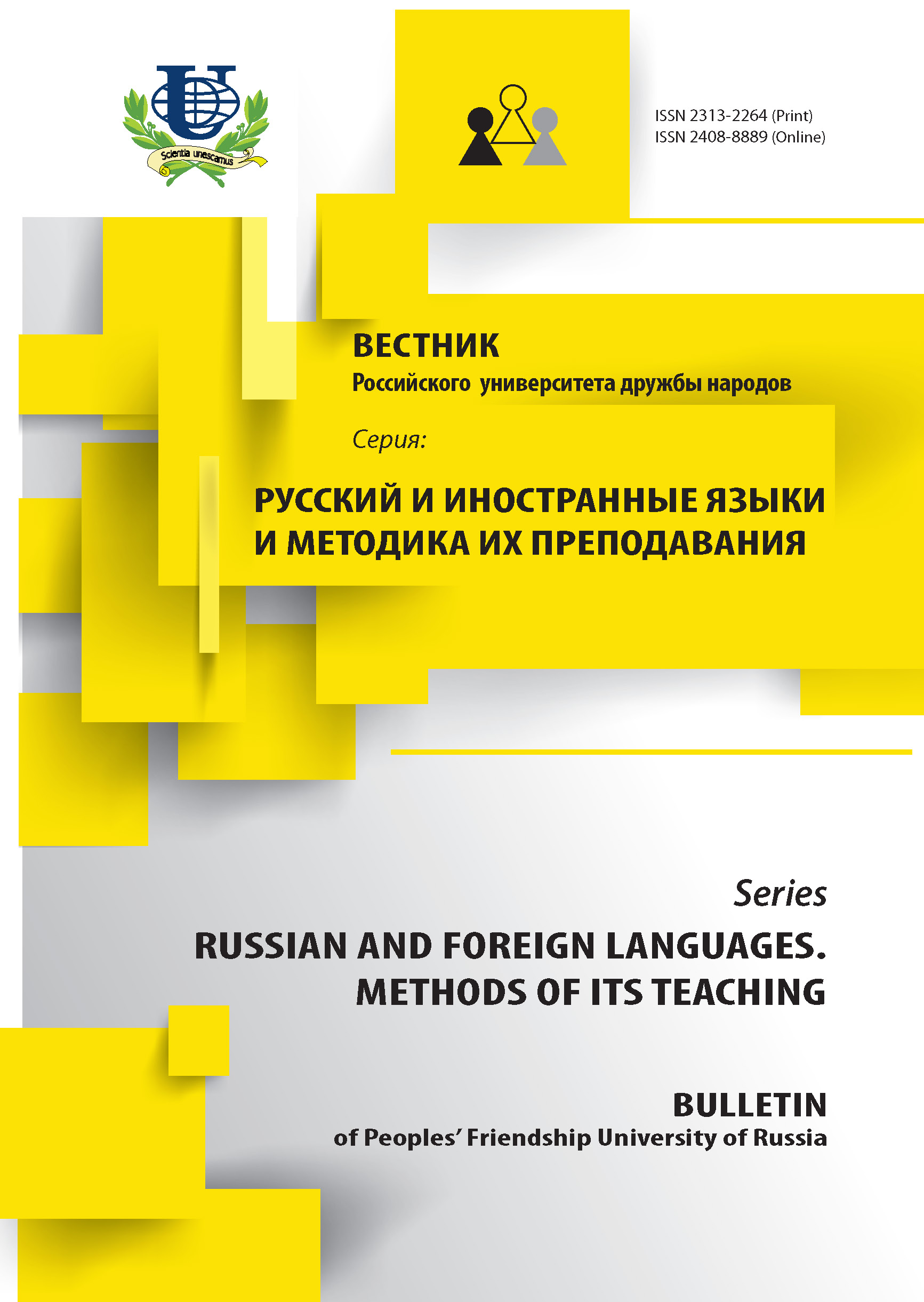No 1 (2008)
- Year: 2008
- Articles: 13
- URL: https://journals.rudn.ru/russian-language-studies/issue/view/600
Articles
The cognitive-pragmatic potential of fraseological semanticsin literary discourse
Abstract
That's why the attention of the researcher is being focused on the fraseological units in the process of its semantic realization in the literal discourse. Different ways of modification of fraseological semantics are analysed. The connecting of fraseological unites and author's semantically-stylistic system.
Russian Language Studies. 2008;(1):5-10
 5-10
5-10


The temporal proposition as a reflection of the speaker'sworld-picture
Abstract
This paper examines the relationship between means of expression in temporal propositions on the one hand and varions types of both cognition and perception of the speaker's situation. The paper advances the assumption that for the author of a newspaper text, the choice of one or another means of expression of temporal proposition enables the author to offer a fragment of his «world-picture».
Russian Language Studies. 2008;(1):11-15
 11-15
11-15


 16-21
16-21


Organization and specification of the managementof the foreing language's independent work to students of technical specialities
Abstract
This article deals with the peculiarities of the foreign language independent work's management to students of technical specialities. These peculiarities have a rather complicated structure. While planning the management's activity on foreign language it is important to take into consideration the time factor and choose those variants which give the quickest return in minimal time's expenditure, taking into consideration the small amount of the hours given to language study in technical higher schools.
Russian Language Studies. 2008;(1):22-30
 22-30
22-30


 31-36
31-36


 37-43
37-43


Ekvivalentnost'/bezekvivalentnost' of russian phraseologismswith the component «the part of the human body» from the point of viewof the carriers of the chinese language»
Abstract
The examination of Russian phraseologisms with the component «the part of the human body» from the point of view of their complete, partial equivalence or bezekvivalentnosti makes possible for us to reveal in these phraseologisms not only the common features, but also specific, which make it possible to focus special attention with the teaching in the Chinese audience, which studies the Russian language as foreign, on them.
Russian Language Studies. 2008;(1):44-47
 44-47
44-47


 48-54
48-54


 55-59
55-59


Joy and sorrow in the russian and english language pictureof the world (using proverbs and sayings)
Abstract
The article is aimed to analyze the block of the Russian and English proverbs in comparative aspect of extralinguistics - the problems of language and culture. The author states that the reasons of non-coincidence in their semantics are connected with the peculiarities of national culture.
Russian Language Studies. 2008;(1):60-64
 60-64
60-64


 65-71
65-71


 72-76
72-76


Realities modern heendy in training to the actuality«liguaculture» in the haire scool and institute
Abstract
The creation of modules about Indian culture, history, geography on Hindi language is directed not only to purchase of new knowledge of Republic India, but also to develop the cognitive abilities and communicative skills of pupils and students. Using Internet-sites, periodicals, textbooks, video films, pupils and students can get acquainted with the Indian realities in sphere of culture, geography and history, to discuss sources of the information, to lead analytical work on problem questions of the project, to generalize the received facts and to describe them in the presentations.
Russian Language Studies. 2008;(1):77-84
 77-84
77-84















